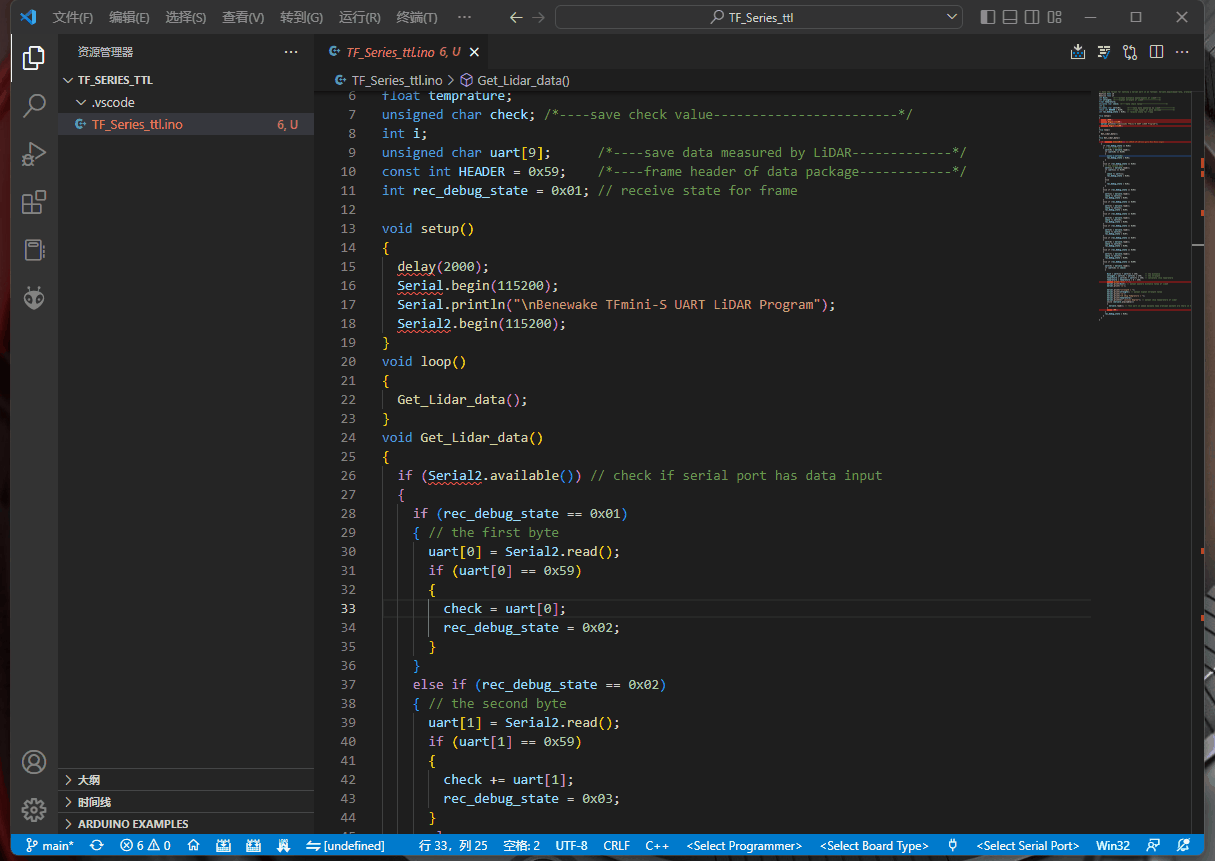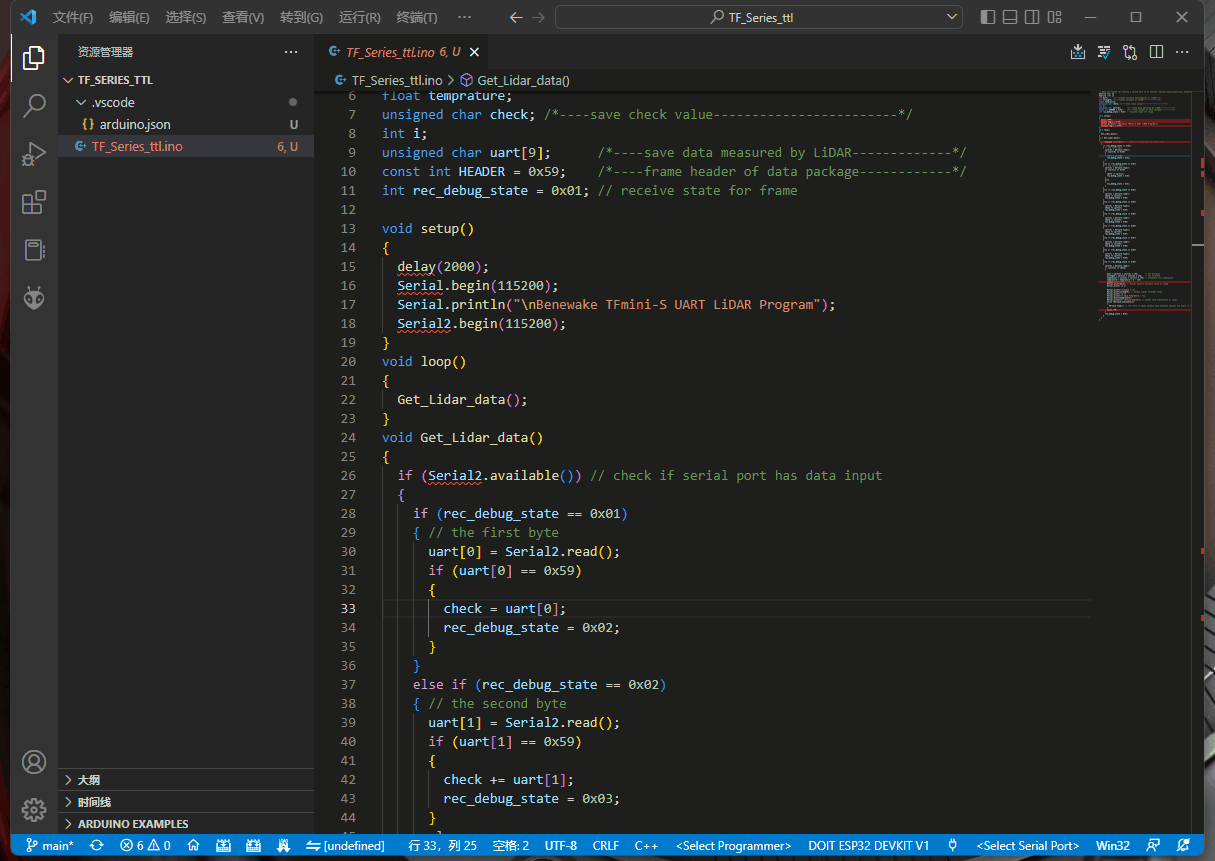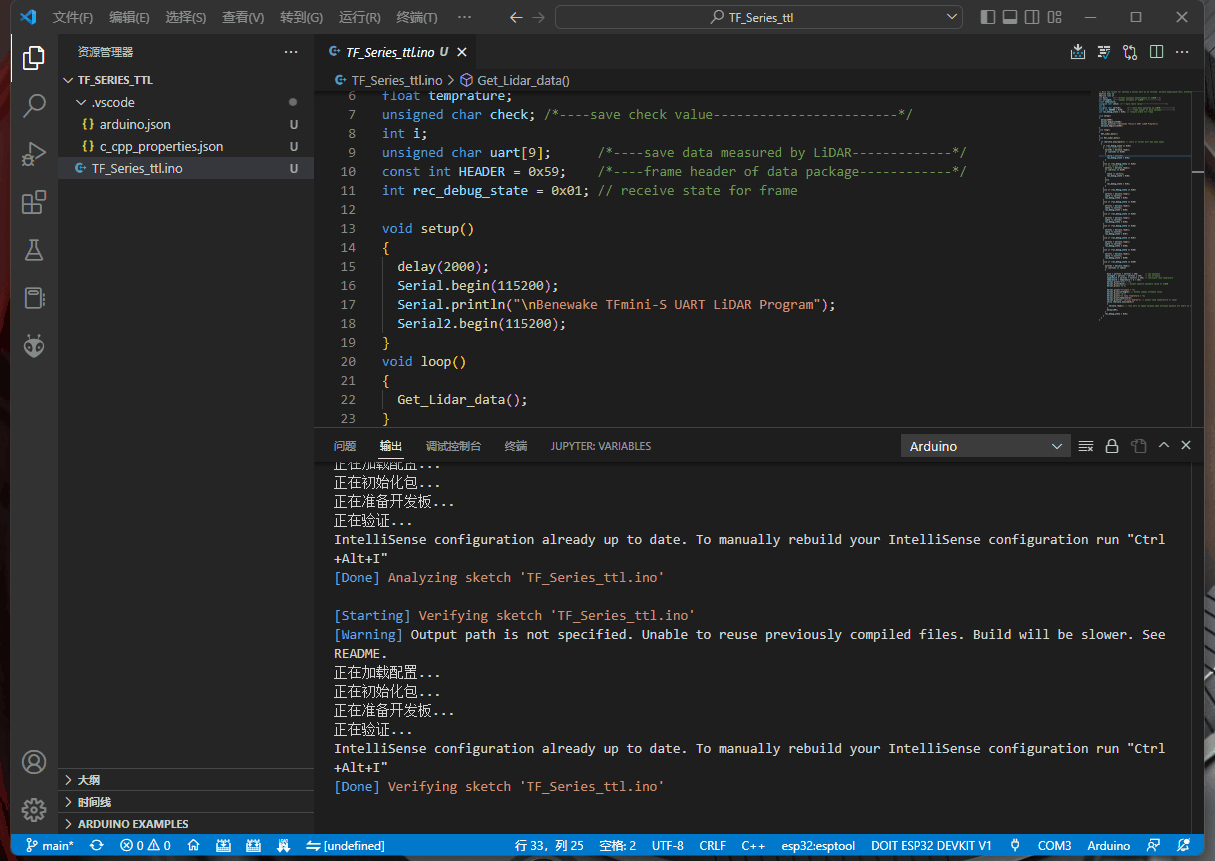- 智利插画师Maria victoria rivero作品欣赏
布丁辰儿
分享智利插画师Mariavictoriarivero的一组作品~她利用彩铅细腻的特性,选择用来表现女生的皮肤,上色柔和,过渡自然,很好地描绘出了少女肌肤的光滑细腻的特点。然后再利用有色卡纸本身带有的颜色与肌理的特点,适当地运用白色进行遮盖与刻画,从而使画面通透、华丽、装饰性意味极强,最终呈现出来的效果非常的棒。
- 远方文学二级要开课了
洮南远方文学
图片发自App近几日有家长不断咨询二级课程。二级课程开始正式学习小说和戏剧。像《红楼梦》、《巴黎圣母院》这些长篇小说是世界文学精粹!二级与一级不同,背诵比较少,主要是理解小说人物和情节。我们希望能够基于语文这个平台,让孩子从情感上从人性上得到更健康的影响,同时,我们真正的让孩子能够运用语言文字提升作品理解能力。人生路漫漫,好多东西是需要用投入时间和精力才能完成的!图片发自App
- 母愛激勵著我成長
千樽羽心
图片发自App如果母親是一顆遮擋風澤,則我就是依偎在大樹旁的小草;如果母親是一片大海,則我就是那其中一朵浪花;如果母親是一片天空,則我就一只徘徊在空中的鳥兒。母親一路呵護著我,激勵著我不斷成長。我的母親不識字。有時,我便教她,有時,我卻一味地責怪她……每天很早,母親都是第一個起床,這時候睡夢中的我便會迷迷糊糊的聽到母親做飯聲。我撩開窗簾望著外面,天還是灰沉沉的,北風呼嘯我不禁打個哆嗦又鑽進暖轟轟的
- HTML+CSS简单网页练习
前言运用了CSS进行简单的网页制作一、效果图二、HTML代码手机alert("欢迎—>"+prompt("请输入你的姓名")+"首页智能手机平板电脑配件服务支持关于尚合最新公告:尚合Aone智能手机入网证已经获工信部门审批下发。尚合官方新品发布新闻中心致歉公告首批尚合Aone已全部售罄!【媒体报道】国产高性价比尚合Aone四核手机评测我司产品已经通过了国家强制性产品3C认证尚合Aone智能手机入网
- 给教师的建议(第62条)
栗子的栗_1a02
给教师的建议(第62条)让学生生活在思考的世界里人应当首先在思考领域里成为劳动者他读这些书不是为了去记熟它和背诵它,而是出于一种思考、认识、发现和好奇的需要,只有这样,这个学生才会成为一个会思考的劳动者。怎样才能使思考的活动在学校里占据统治地位,怎样才能使思考、认识、发现、理解和求知的需要,成为一个人的最主要的精神需要呢?这里就需要运用教师的智慧。在每一个年轻的心灵里,都存放着求知好学。渴求知识的
- 深圳复刻表在哪里买比较好?试试十个靠谱渠道
美鞋之家
深圳复刻表在哪里买比较好,随着经济的快速发展,人们对于高品质生活的追求也日益增强。目前,越来越多的消费者开始将目光瞄准各种名表,但是名表的价格又相对较高,因此,复刻表便成了许多消费者的选择。深圳作为国内复刻表市场的集散地之一,有许多能够买到优质复刻表的渠道。本文将为大家介绍十个在深圳购买复刻表的靠谱渠道。微信:798445980(下单赠送精美礼品)1、华强北:华强北是深圳最大的电子市场,同时也是复
- 病瑞年惊哭李梅子,忙队长诉说闹心事【六】
南山顽石
耀全也走到一旁坐下说:“能退烧就好。”郭达山却去瑞年chuang边坐了,拿手在瑞年脸上试了试,问道:“浓胜,你说瑞年这是啥毛病?昨天还好好的,咋今儿就成这了?”毛浓胜说:“看这样子是受凉了。但咋受的凉,得等瑞年醒了,问一下才知道。”郭达山便又说:“不知道瑞年啥时候才能醒?”毛浓胜说:“等烧再退一点就醒了。他这是烧糊涂了。我来的时候,他三十九度多呢!现在都强多了!”
- 夏莲90天和平第5天
夏莲的美好生活
早晚时间轴:1、清晨感恩冥想2、早上空腹喝一杯热水3、呼吸法4、开心喜悦的准备丰盛的早餐5、认真护理皮肤6、晚上跟老公内服复合益生元感恩日记:❤️很感恩昨晚有好的睡眠,睡到自然醒,身体特别轻盈,感恩宇宙哥哥夜晚的陪伴。谢谢谢谢❤️很感恩自己的觉知可以在新年的第一天开心给女儿老公准备早餐,特别感恩刚好家里有现成的,所以让我可以简单的做了烤面包,煎鸡蛋,煎葱油饼,冲好豆浆,削好橙子,摆好盘后邀请女儿老
- 季节美 人却愁
痛或乐
清晨的鸟鸣声吵醒了睡梦中的人,带着朦胧睡意打开了灯。窗外天空还是灰蒙蒙的,就像睡意中的人,但鸟儿们早已叽叽喳喳叫个不停,这是属于此季节独有的景象。已经记不得什么时候醒得像今天一样的早,只曾记得这些日子以来,与游戏,小说,电视剧形影不离,每天不熬夜就觉得浑身难受。在这样的日子下,时间成了模糊的概念,要不是窗外栽种这些樱桃树、梨树,树上茂盛地开着白花和粉色的花,房屋里面的主人或许还不知道,春天,已经到
- 大一暑假适合学51单片机吗?
淘晶驰AK
51单片机嵌入式硬件单片机
大一暑假学51单片机,简直是老天爷赏饭吃的黄金窗口。我当时就是靠着这两个月,把从课本上看来的C语言指针、循环语句,变成了能让LED按节奏跳舞的真本事。学期里总被高数作业和英语背单词挤得没整块时间,焊个电路板还得算着实验室关门时间。暑假就不一样了,早上自然醒后泡杯咖啡,搬个小桌子到阳台,开发板一铺就是一整天。记得第一次烧写程序时,手抖着插杜邦线,结果把VCC接到了GND,开发板瞬间冒出股焦味——后来
- 《掌控》的运用让我三个月瘦了5斤
LexiCai蔡
樊登老师瘦身成功,并爱上了跑步,因此在最近的一期讲书时请来了他的教练,也就是这本书的作者张展晖,他们一起探讨了如何通过跑步瘦身进行精力管理,从而实现对自己人生的掌控看到樊登老师的变化后,更加大了这本书能够帮助大家健康瘦身成功的可信性,最近坚持健身效果不错,结合了这本书后,开启了全方位的打造自己,如果你有以下问题,可以参考一下这本书1.跑一下就气喘吁吁,坚持不下去了,找不到一个合适的速度2.长时间的
- 【C# in .NET】2. 探秘数据类型:构建程序的基石
阿蒙Armon
C#in.NETc#.netjava
探秘数据类型:构建程序的基石在C#编程中,数据类型是构建程序的基石。无论是简单的整数计算还是复杂的对象交互,都离不开对数据类型的精准运用。然而,大多数开发者对数据类型的理解往往停留在表面语法层面,忽视了其在.NET框架底层的运行机制。本文将从CLR(公共语言运行时)的视角,深入剖析C#数据类型的本质、内存布局与核心机制,带你看透数据类型背后的底层逻辑。一、数据类型的本质:CLR类型系统的双轨制.N
- 【世纪龙科技】智能网联汽车环境感知系统教学难题的创新实践
江苏世纪龙科技
智能网联汽车汽车仿真教学软件汽车
在职业院校智能网联汽车专业教学中,环境感知系统的教学长期面临三大核心挑战:设备成本高昂导致实训资源不足、抽象原理难以直观呈现、传统教学模式难以满足产业需求。如何让学生在有限的教学条件下,深入理解激光雷达、毫米波雷达等核心部件的工作原理,并掌握实际应用能力?江苏世纪龙科技研发的《智能网联汽车环境感知系统VR教学软件》,为这一教学痛点提供了创新解决方案。聚焦教学痛点,重构学习体验传统实训室中,传感器设
- 要有一点大格局
朱黎亮
芦北听课后的反思,2019年1月16日重新输入从这两天(2018年11.27-28日)的督学活动中(芦北一次听刘老师听、评课以及壶山学区督学活动)发现自己的视野过多的关注在小问题和小细节、或者是具体的问题上,而缺乏一定的眼界,缺乏一定的高度。不是说细节不好,而是关注点小了后,觉得格局也小了。打球也是如此,感觉自己太“小”,总希望用一些“小范围”的倒腾来突破局面,而忘记了打破僵局靠的还是正面强硬的手
- 硬笔手抄:《小窗幽记》传世警句——人心好胜,我以胜应必败;人情好谦,我以谦处反胜
清泉_9313
《小窗幽记》——朝市山林俱有事,今人忙处古人闲。《小窗幽记》——富贵之家,常有穷亲戚来往,便是忠厚。《小窗幽记》——人心好胜,我以胜应必败;人情好谦,我以谦处反胜。《小窗幽记》——富时不俭贫时悔,潜时不学用时悔,醉后狂言醒时悔,安不将息病时悔。《小窗幽记》——草色花香,游人赏其真趣;桃开梅谢,达士悟其无常。《小窗幽记》——真放肆不在饮酒高歌,假矜持偏于大庭卖弄。看明世事透,自然不重功名;认得当下真
- 河南这5个差点出省的景区,2个在豫北,3个在豫南,你都去过吗?
临窗观景LCGJ
河南位于我国中部地区,北跨黄河,南依汉水,境内地形多样,自然旅游资源丰富,山川景色兼具北方之雄浑和南方之秀丽。河南与多省相邻,这其中就有一些跨省或者两省共有的景区,我们就来聊一聊其中较知名的五个吧:云台山云台山景区位于豫北地区的焦作市修武县与山西省晋城市陵川县交界处,是世界地质公园,国家AAAAA级景区。青天河青天河以前的名字叫红旗水库,位于豫北焦作市博爱县与山西省晋城市泽州县之间,是世界地质公园
- 2023-05-06
知行合一1314
中原焦点团队,网初23+网初37+网中37期坚持分享第661天,本周约练1场,共56场当例外难以被发掘时,运用奇迹问句来帮助当事人形成愿景与解决之道,会是很有用的技巧。咨询师记得探问奇迹发生时之人、事、时、地、物的相关细节,让奇迹的愿景在当事人心中明朗、鲜明化,此将可帮助当事人产生盼望与方向。接着,咨询师便可以运用奇迹问句的内容,帮助当事人找寻与形成具体的小目标。奇迹问句使愿景与现今生活产生连结,
- 五绝·邀刘十九不来
佳纱
文/佳纱红炉今夜酒,谁与话温存?醒看寒窗外,庭无踏雪痕。白居易原玉《问刘十九》绿蚁新醅酒,红泥小火炉。晚来天欲雪,能饮一杯无?
- 日语入门学习资料,都在这里了!
日语初级学习
刚开始学习日语的同学都有疑问,比如:应该如何背单词?如何运用语法?如何把日语说出来?......应该怎么学日语?学习方法很重要。在日语日常使用中学习运用,或者在老师指导下了解学习方法,从开始就发现并逐渐掌握适合自己的学习方法,可以少走很多的弯路,节省非常多的时间。今天整理了日语入门的学习资料,包含五十音素材、日常用语、教材资料、语法学习规律等等,希望能帮助大家更好的学习。该有的都在这儿了!!☟1.
- 2022-05-17
咖喱酸果
“活干多了,可以选择不干”这两天听到最多的声音就是这句话“躺平”真真切切的来到了每个人的身边主动躺平,被动躺平,集体性躺平世界变化如此之快,我还是落伍的那一群,一种被烧灼的恶臭阵阵袭来,腐蚀着“不忘初心”是早已烂透了,还是我是傻子是众人皆醉我独醒,还是愤愤不平强说愁但确定的是我绝不是正义的化身
- 基于开源AI智能名片链动2+1模式与S2B2C商城小程序的渠道选择策略研究
说私域
人工智能小程序
摘要:在数字化商业环境下,品牌与产品的渠道选择对其市场推广和运营成功至关重要。本文聚焦于如何依据自身品牌和产品特性,结合开源AI智能名片链动2+1模式与S2B2C商城小程序,运用科学的渠道选择方法,慎重挑选1-2个适宜平台,集中资源发力并取得成绩后再拓展其他渠道。通过理论分析与案例研究,探讨该策略的有效性和可行性,为企业渠道布局提供参考。关键词:渠道选择;开源AI智能名片;链动2+1模式;S2B2
- vue keep-alive标签的运用
keep-alive,想必大家都不会很陌生,在一些选项卡中会使用到。其实,它的作用大概就是把组件的数据给缓存起来。比如果我有一个选项卡,标签一,标签二,标签三。现在,我需要实现,当我在标签一的表单中输入内容后,点击标签二,再回到标签一,表单的内容依然存在。如果按以往的做法,不使用keep-alive,那是不能实现的。然而,我们只需要在选项卡的内容最外层包一个keep-alive标签即可。但这儿有一
- .NET中的安全性之数字签名、数字证书、强签名程序集、反编译
hezudao25
NET.netassembly加密算法referenceheader
本文将探讨数字签名、数字证书、强签名程序集、反编译等以及它们在.NET中的运用(一些概念并不局限于.NET在其它技术、平台中也存在)。1.数字签名数字签名又称为公钥数字签名,或者电子签章等,它借助公钥加密技术实现。数字签名技术主要涉及公钥、私钥、非对称加密算法。1.1公钥与私钥公钥是公开的钥匙,私钥则是与公钥匹配的严格保护的私有密钥;私钥加密的信息只有公钥可以解开,反之亦然。在VisualStud
- stm32与ESP32-C3通过串口连接
林内克思
stm32嵌入式硬件单片机
ESP32-C3是一款安全稳定、低功耗、低成本的物联网芯片,搭载RISC-V32位单核处理器,支持2.4GHzWi-Fi和Bluetooth5(LE)。ESP32-C3本身就可以作为一个单片机使用,但是我们这里只是把ESP32-C3作为一个Wi-Fi/蓝牙模块使用。STM32与ESP32-C3使用串口进行通讯。STM32可以给ESP32-C3发送命令,这种命令叫ESP-AT指令。首先通过pc串口E
- 【电脑】主板的基础知识
Mike_Wuzy
电脑
主板(Motherboard)是计算机的核心组件之一,它将所有其他硬件部件连接在一起并协调它们的工作。以下是关于主板的详细知识:1.架构组成一个典型的主板通常由以下几个主要部分构成:芯片组(Chipset):分为南桥和北桥两个部分。北桥(Northbridge):负责处理高速数据传输,如连接内存控制器、显示接口等。现代CPU集成了北桥的功能,因此许多主板上已经不再有独立的北桥芯片。南桥(South
- 学生数据的输入输出
一粒沙白兔
C语言刷题记录数据结构c语言算法
题目描述编写input()和output()函数输入,输出5个学生的数据记录。程序分析:运用结构体定义学生数据类型,包含姓名、性别、年龄等成员。通过自定义函数input利用循环配合scanf函数接收5个学生的相关数据,存储到结构体数组中;再用自定义函数output,通过循环将结构体数组中存储的学生数据输出。源代码#include#includetypedefstruct{charname[20];
- 低成本作弊神器?使用ESP32将通义千问AI接入学生计算器
前因:IT之家9月24日消息,YouTube频道ChromaLock于9天前发布视频,介绍了名为TI-32的改造电路板,加装在德州仪器TI-84Plus图形计算器上,可以接入ChatGPT。IT之家查询公开资料,在PSAT、SAT和ACT大学入学考试、IB和AP考试中,标准化组织已经批准考生使用TI-84Plus图形计算器。ChromaLock探索了该计算器的连接端口,设计了名为TI-32的改造电
- BOOT_KEY按键(学习笔记)
小高Baby@
学习笔记
先来让我们了解一下GPIO是什么吧,它在单片机中也有很重要的作用,接下来我们来看看吧。esp32C3是QFN32封装(一种集成电路(IC)封装类型),GPIO引脚一共有22个,从GPIO-0到GPIO-21。从理论上来说,所有的IO引脚都可以复用为任何外设功能,但有些引脚用作连接芯片内部FLASH或者外部FLASH功能时,官方不建议用作其它用途。esp32c3的GPIO,可以用作输入、输出,可以配
- C#集合:从基础到进阶的全面解析
阿蒙Armon
C#继续学习c#windowslinux
C#集合:从基础到进阶的全面解析在C#编程中,集合是处理数据集合的核心工具。无论是存储一组对象、实现缓存机制,还是处理复杂的数据结构,都离不开集合的灵活运用。本文将全面深入地探讨C#集合体系,从基础概念到高级技巧,帮助开发者掌握集合的精髓,写出更高效、更优雅的代码。一、集合概述与分类C#集合框架是.NET类库的重要组成部分,它提供了一系列用于存储和操作数据的类和接口。与数组相比,集合具有动态扩容、
- 村村通--洛谷(并查集的运用)
P1536村村通题目描述某市调查城镇交通状况,得到现有城镇道路统计表。表中列出了每条道路直接连通的城镇。市政府“村村通工程”的目标是使全市任何两个城镇间都可以实现交通(但不一定有直接的道路相连,只要相互之间可达即可)。请你计算出最少还需要建设多少条道路?输入格式输入包含若干组测试测试数据,每组测试数据的第一行给出两个用空格隔开的正整数,分别是城镇数目n和道路数目m;随后的m行对应m条道路,每行给出
- springmvc 下 freemarker页面枚举的遍历输出
杨白白
enumfreemarker
spring mvc freemarker 中遍历枚举
1枚举类型有一个本地方法叫values(),这个方法可以直接返回枚举数组。所以可以利用这个遍历。
enum
public enum BooleanEnum {
TRUE(Boolean.TRUE, "是"), FALSE(Boolean.FALSE, "否");
- 实习简要总结
byalias
工作
来白虹不知不觉中已经一个多月了,因为项目还在需求分析及项目架构阶段,自己在这段
时间都是在学习相关技术知识,现在对这段时间的工作及学习情况做一个总结:
(1)工作技能方面
大体分为两个阶段,Java Web 基础阶段和Java EE阶段
1)Java Web阶段
在这个阶段,自己主要着重学习了 JSP, Servlet, JDBC, MySQL,这些知识的核心点都过
了一遍,也
- Quartz——DateIntervalTrigger触发器
eksliang
quartz
转载请出自出处:http://eksliang.iteye.com/blog/2208559 一.概述
simpleTrigger 内部实现机制是通过计算间隔时间来计算下次的执行时间,这就导致他有不适合调度的定时任务。例如我们想每天的 1:00AM 执行任务,如果使用 SimpleTrigger,间隔时间就是一天。注意这里就会有一个问题,即当有 misfired 的任务并且恢复执行时,该执行时间
- Unix快捷键
18289753290
unixUnix;快捷键;
复制,删除,粘贴:
dd:删除光标所在的行 &nbs
- 获取Android设备屏幕的相关参数
酷的飞上天空
android
包含屏幕的分辨率 以及 屏幕宽度的最大dp 高度最大dp
TextView text = (TextView)findViewById(R.id.text);
DisplayMetrics dm = new DisplayMetrics();
text.append("getResources().ge
- 要做物联网?先保护好你的数据
蓝儿唯美
数据
根据Beecham Research的说法,那些在行业中希望利用物联网的关键领域需要提供更好的安全性。
在Beecham的物联网安全威胁图谱上,展示了那些可能产生内外部攻击并且需要通过快速发展的物联网行业加以解决的关键领域。
Beecham Research的技术主管Jon Howes说:“之所以我们目前还没有看到与物联网相关的严重安全事件,是因为目前还没有在大型客户和企业应用中进行部署,也就
- Java取模(求余)运算
随便小屋
java
整数之间的取模求余运算很好求,但几乎没有遇到过对负数进行取模求余,直接看下面代码:
/**
*
* @author Logic
*
*/
public class Test {
public static void main(String[] args) {
// TODO A
- SQL注入介绍
aijuans
sql注入
二、SQL注入范例
这里我们根据用户登录页面
<form action="" > 用户名:<input type="text" name="username"><br/> 密 码:<input type="password" name="passwor
- 优雅代码风格
aoyouzi
代码
总结了几点关于优雅代码风格的描述:
代码简单:不隐藏设计者的意图,抽象干净利落,控制语句直截了当。
接口清晰:类型接口表现力直白,字面表达含义,API 相互呼应以增强可测试性。
依赖项少:依赖关系越少越好,依赖少证明内聚程度高,低耦合利于自动测试,便于重构。
没有重复:重复代码意味着某些概念或想法没有在代码中良好的体现,及时重构消除重复。
战术分层:代码分层清晰,隔离明确,
- 布尔数组
百合不是茶
java布尔数组
androi中提到了布尔数组;
布尔数组默认的是false, 并且只会打印false或者是true
布尔数组的例子; 根据字符数组创建布尔数组
char[] c = {'p','u','b','l','i','c'};
//根据字符数组的长度创建布尔数组的个数
boolean[] b = new bool
- web.xml之welcome-file-list、error-page
bijian1013
javaweb.xmlservleterror-page
welcome-file-list
1.定义:
<welcome-file-list>
<welcome-file>login.jsp</welcome>
</welcome-file-list>
2.作用:用来指定WEB应用首页名称。
error-page1.定义:
<error-page&g
- richfaces 4 fileUpload组件删除上传的文件
sunjing
clearRichfaces 4fileupload
页面代码
<h:form id="fileForm"> <rich:
- 技术文章备忘
bit1129
技术文章
Zookeeper
http://wenku.baidu.com/view/bab171ffaef8941ea76e05b8.html
http://wenku.baidu.com/link?url=8thAIwFTnPh2KL2b0p1V7XSgmF9ZEFgw4V_MkIpA9j8BX2rDQMPgK5l3wcs9oBTxeekOnm5P3BK8c6K2DWynq9nfUCkRlTt9uV
- org.hibernate.hql.ast.QuerySyntaxException: unexpected token: on near line 1解决方案
白糖_
Hibernate
文章摘自:http://blog.csdn.net/yangwawa19870921/article/details/7553181
在编写HQL时,可能会出现这种代码:
select a.name,b.age from TableA a left join TableB b on a.id=b.id
如果这是HQL,那么这段代码就是错误的,因为HQL不支持
- sqlserver按照字段内容进行排序
bozch
按照内容排序
在做项目的时候,遇到了这样的一个需求:
从数据库中取出的数据集,首先要将某个数据或者多个数据按照地段内容放到前面显示,例如:从学生表中取出姓李的放到数据集的前面;
select * fro
- 编程珠玑-第一章-位图排序
bylijinnan
java编程珠玑
import java.io.BufferedWriter;
import java.io.File;
import java.io.FileWriter;
import java.io.IOException;
import java.io.Writer;
import java.util.Random;
public class BitMapSearch {
- Java关于==和equals
chenbowen00
java
关于==和equals概念其实很简单,一个是比较内存地址是否相同,一个比较的是值内容是否相同。虽然理解上不难,但是有时存在一些理解误区,如下情况:
1、
String a = "aaa";
a=="aaa";
==> true
2、
new String("aaa")==new String("aaa
- [IT与资本]软件行业需对外界投资热情保持警惕
comsci
it
我还是那个看法,软件行业需要增强内生动力,尽量依靠自有资金和营业收入来进行经营,避免在资本市场上经受各种不同类型的风险,为企业自主研发核心技术和产品提供稳定,温和的外部环境...
如果我们在自己尚未掌握核心技术之前,企图依靠上市来筹集资金,然后使劲往某个领域砸钱,然
- oracle 数据块结构
daizj
oracle块数据块块结构行目录
oracle 数据块是数据库存储的最小单位,一般为操作系统块的N倍。其结构为:
块头--〉空行--〉数据,其实际为纵行结构。
块的标准大小由初始化参数DB_BLOCK_SIZE指定。具有标准大小的块称为标准块(Standard Block)。块的大小和标准块的大小不同的块叫非标准块(Nonstandard Block)。同一数据库中,Oracle9i及以上版本支持同一数据库中同时使用标
- github上一些觉得对自己工作有用的项目收集
dengkane
github
github上一些觉得对自己工作有用的项目收集
技能类
markdown语法中文说明
回到顶部
全文检索
elasticsearch
bigdesk elasticsearch管理插件
回到顶部
nosql
mapdb 支持亿级别map, list, 支持事务. 可考虑做为缓存使用
C
- 初二上学期难记单词二
dcj3sjt126com
englishword
dangerous 危险的
panda 熊猫
lion 狮子
elephant 象
monkey 猴子
tiger 老虎
deer 鹿
snake 蛇
rabbit 兔子
duck 鸭
horse 马
forest 森林
fall 跌倒;落下
climb 爬;攀登
finish 完成;结束
cinema 电影院;电影
seafood 海鲜;海产食品
bank 银行
- 8、mysql外键(FOREIGN KEY)的简单使用
dcj3sjt126com
mysql
一、基本概念
1、MySQL中“键”和“索引”的定义相同,所以外键和主键一样也是索引的一种。不同的是MySQL会自动为所有表的主键进行索引,但是外键字段必须由用户进行明确的索引。用于外键关系的字段必须在所有的参照表中进行明确地索引,InnoDB不能自动地创建索引。
2、外键可以是一对一的,一个表的记录只能与另一个表的一条记录连接,或者是一对多的,一个表的记录与另一个表的多条记录连接。
3、如
- java循环标签 Foreach
shuizhaosi888
标签java循环foreach
1. 简单的for循环
public static void main(String[] args) {
for (int i = 1, y = i + 10; i < 5 && y < 12; i++, y = i * 2) {
System.err.println("i=" + i + " y="
- Spring Security(05)——异常信息本地化
234390216
exceptionSpring Security异常信息本地化
异常信息本地化
Spring Security支持将展现给终端用户看的异常信息本地化,这些信息包括认证失败、访问被拒绝等。而对于展现给开发者看的异常信息和日志信息(如配置错误)则是不能够进行本地化的,它们是以英文硬编码在Spring Security的代码中的。在Spring-Security-core-x
- DUBBO架构服务端告警Failed to send message Response
javamingtingzhao
架构DUBBO
废话不多说,警告日志如下,不知道有哪位遇到过,此异常在服务端抛出(服务器启动第一次运行会有这个警告),后续运行没问题,找了好久真心不知道哪里错了。
WARN 2015-07-18 22:31:15,272 com.alibaba.dubbo.remoting.transport.dispatcher.ChannelEventRunnable.run(84)
- JS中Date对象中几个用法
leeqq
JavaScriptDate最后一天
近来工作中遇到这样的两个需求
1. 给个Date对象,找出该时间所在月的第一天和最后一天
2. 给个Date对象,找出该时间所在周的第一天和最后一天
需求1中的找月第一天很简单,我记得api中有setDate方法可以使用
使用setDate方法前,先看看getDate
var date = new Date();
console.log(date);
// Sat J
- MFC中使用ado技术操作数据库
你不认识的休道人
sqlmfc
1.在stdafx.h中导入ado动态链接库
#import"C:\Program Files\Common Files\System\ado\msado15.dll" no_namespace rename("EOF","end")2.在CTestApp文件的InitInstance()函数中domodal之前写::CoIniti
- Android Studio加速
rensanning
android studio
Android Studio慢、吃内存!启动时后会立即通过Gradle来sync & build工程。
(1)设置Android Studio
a) 禁用插件
File -> Settings... Plugins 去掉一些没有用的插件。
比如:Git Integration、GitHub、Google Cloud Testing、Google Cloud
- 各数据库的批量Update操作
tomcat_oracle
javaoraclesqlmysqlsqlite
MyBatis的update元素的用法与insert元素基本相同,因此本篇不打算重复了。本篇仅记录批量update操作的
sql语句,懂得SQL语句,那么MyBatis部分的操作就简单了。 注意:下列批量更新语句都是作为一个事务整体执行,要不全部成功,要不全部回滚。
MSSQL的SQL语句
WITH R AS(
SELECT 'John' as name, 18 as
- html禁止清除input文本输入缓存
xp9802
input
多数浏览器默认会缓存input的值,只有使用ctl+F5强制刷新的才可以清除缓存记录。如果不想让浏览器缓存input的值,有2种方法:
方法一: 在不想使用缓存的input中添加 autocomplete="off"; eg: <input type="text" autocomplete="off" name







